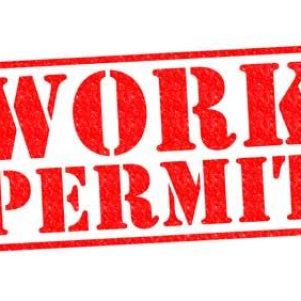On January 11, 2014, the Spanish Legal Bulletin (BOE) published the Order ESS/2518/2013 of December 26, 2013 (which became effective on January 12, 2014), which regulates the training aspects of the vocational training and apprenticeship contract. The Order develops the Royal Decree 1529/2012 of November 8, 2012, which implements the contract and establishes the basis of dual professional training.
In particular, the Order outlines when it is possible to finance the training activity through reductions and collaboration agreements. The Order also establishes the maximum reduction amount allowed to training centres and companies to finance the training activity and outlines the procedures and requirements that training centres and companies must complete to obtain the reduction.
Authorization for Commencing Training Activities
Before the signing of the vocational training and apprenticeship contract and its extensions, the Spanish Public Employment Service Office (SPEE) (in the autonomous community where the company’s workplace is located or where one company has several workplaces in more than one autonomous community) must authorize the start of the training activity.
For this purpose, the company or the training centre that signs the training activity agreement must directly make the request, which must accompany the training activity agreement (in the Order, references to the company include temporary work agencies).
The request process is through the Electronic Registry of the SPEE when the competence to grant authorization corresponds to the SPEE and the authorization does not come from the corresponding SPEE in the autonomous community. However, authorizing the start of the training activity is not necessary with contracts of this nature that subscribe to the framework of the actions and measures of Article 25.1 (d) of the Employment Act, which includes educational workshops, trade and employment workshops, and others subject to possible approval.
After the competent authority authorizes the training activity, either explicitly (within one month from the date of the agreement) or by administrative silence, the contract and the relative annexe to the training activity agreement finalize. Both the company and the training centre must each have a copy of the agreement signed by both parties and available to competent supervising bodies.
According to the sixth additional provision of the Order, a complementing annexe related to the training activity agreement is not required in contracts for vocational training and apprenticeship that subscribe to the framework of the actions and measures of Article 25.1 (d) of the Employment Act, which includes educational workshops, trade and employment workshops, and others subject to possible approval.
The company must communicate the formulization and finalization of the initial contract and its extensions to the corresponding Spanish Public Employment Service office within a maximum period of 10 days.
The Work Contract and Training Activity Agreement
The company, training centre, or a body that the competent Spanish education or labour authority designates must sign the vocational training and apprenticeship contract and the relative annex to the training activity agreement to impart training and the worker. When the company directly provides the training, only the worker needs to sign the vocational training and apprenticeship contract. The vocational training and apprenticeship contract as well as the relative annex to the training activity agreement must be formalised in the official forms that appear in electronic format on the Spanish Public Employment Service website (www.sepe.es).
Duration of the Training Activity
The vocational training and apprenticeship contract must occur on a full-time basis, allocating part of the time to performing paid employment and the other part to receiving training related to the job position the worker occupies.
The time spent on training activity cannot be less than 25% during the first year or 15% during the second and third year of the maximum workday hours prescribed in the collective agreement or, in its absence, the maximum legal workday hours. The annual workday hours, not including vacation days, will serve as a reference to calculate the time spent on training activities.
When the parties agree to concentrate the training activity in fixed periods during the contract’s enforcement, they must expressly state so in the training activity agreement.
Content of the Training Activity
The training activity of the vocational training and apprenticeship contract must be programmed according to the royal decrees that regulate each professional certificate or training cycle when the training activity is necessary to obtain an intermediate or superior vocational qualification diploma or a professional certificate, or, where appropriate, academic certification or partial cumulative accreditation.
When the training is for attaining a level 2 or level 3 professional certificate or vocational qualification, the training activity agreement must contain a relative declaration that the worker meets the requirements of access to the training as established in the corresponding regulation or legislation. This may be subject to verification through the competent public authorities that monitor and control the training activity.
In addition to the points expressed in the previous paragraph, the training activity may include complementary training associated with the needs of the company or the worker. This complementary training activity does not work, and the competent SPEE must authorize the start of the complementary training activity so that it may appear in the training activity agreement. This complementary training is not subject to public funding through reductions.
For more information on training and apprenticeship contracts in Spain,





